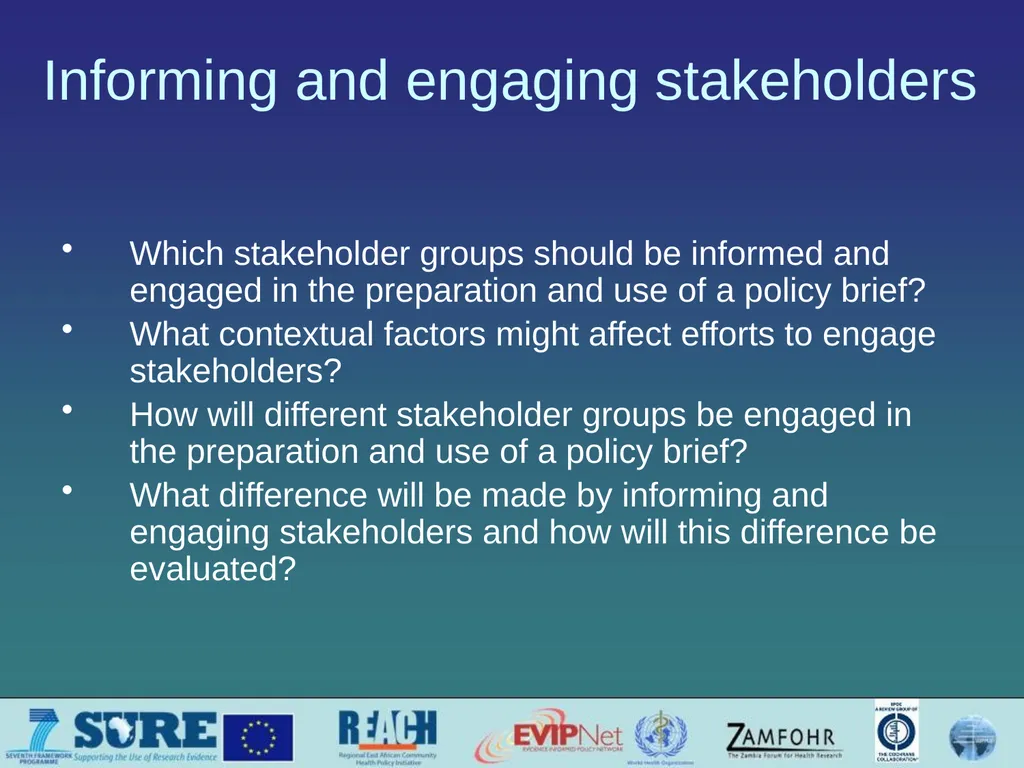
Author : lindy-dunigan | Published Date : 2025-06-23
Description: Informing and engaging stakeholders Which stakeholder groups should be informed and engaged in the preparation and use of a policy brief? What contextual factors might affect efforts to engage stakeholders? How will different stakeholderDownload Presentation The PPT/PDF document "" is the property of its rightful owner. Permission is granted to download and print the materials on this website for personal, non-commercial use only, and to display it on your personal computer provided you do not modify the materials and that you retain all copyright notices contained in the materials. By downloading content from our website, you accept the terms of this agreement.
Here is the link to download the presentation.
"Informing and engaging stakeholders Which"The content belongs to its owner. You may download and print it for personal use, without modification, and keep all copyright notices. By downloading, you agree to these terms.













